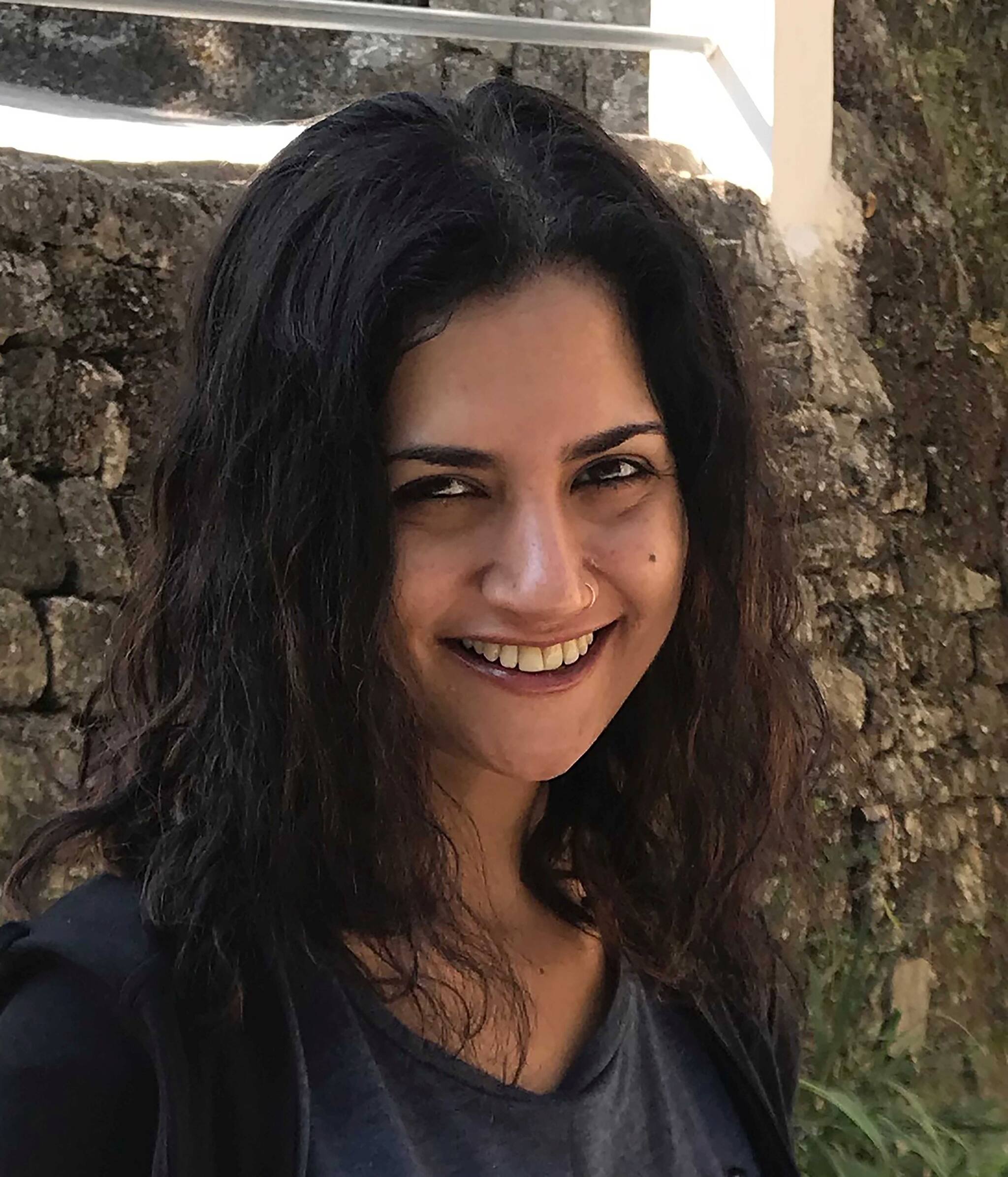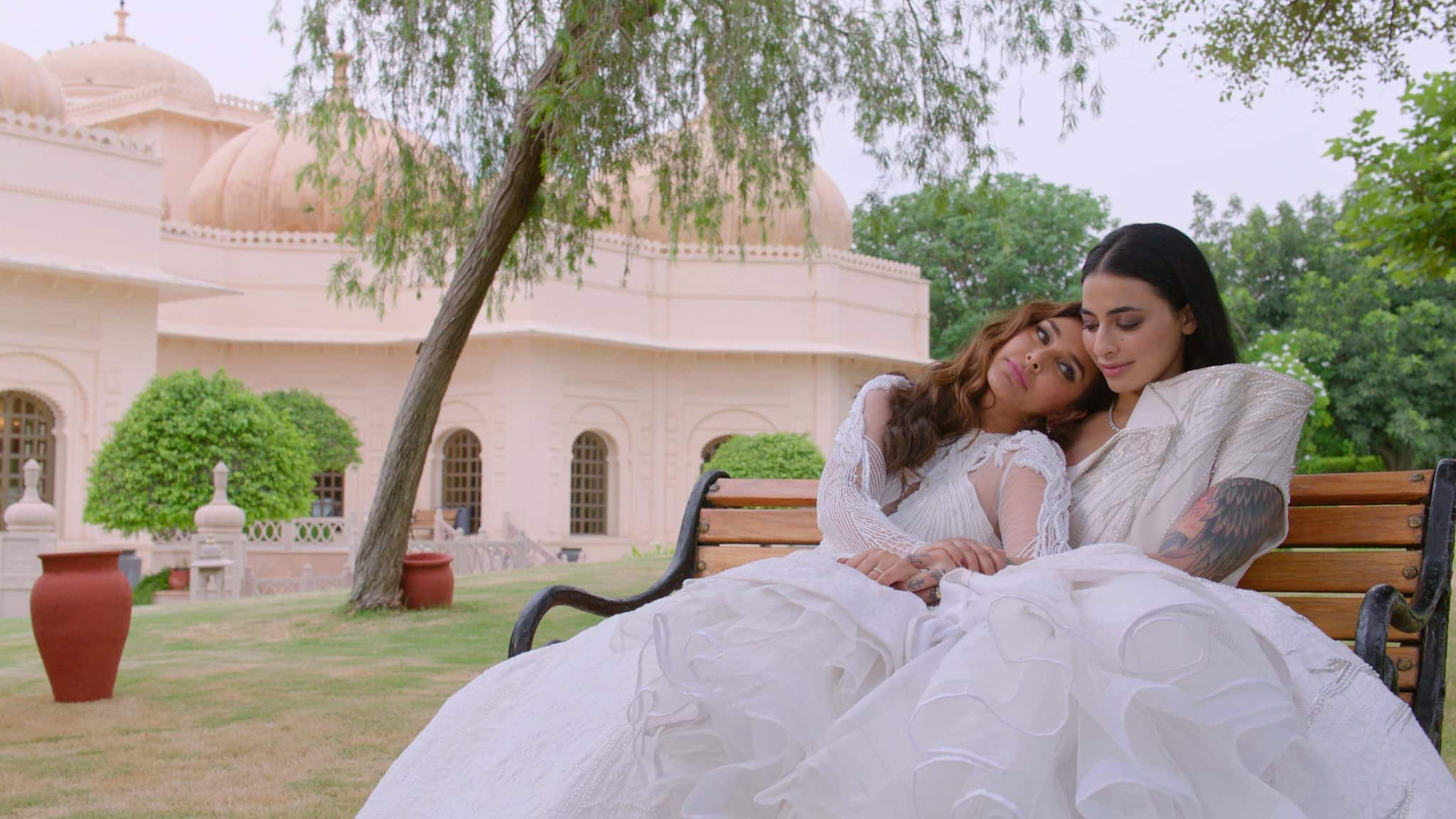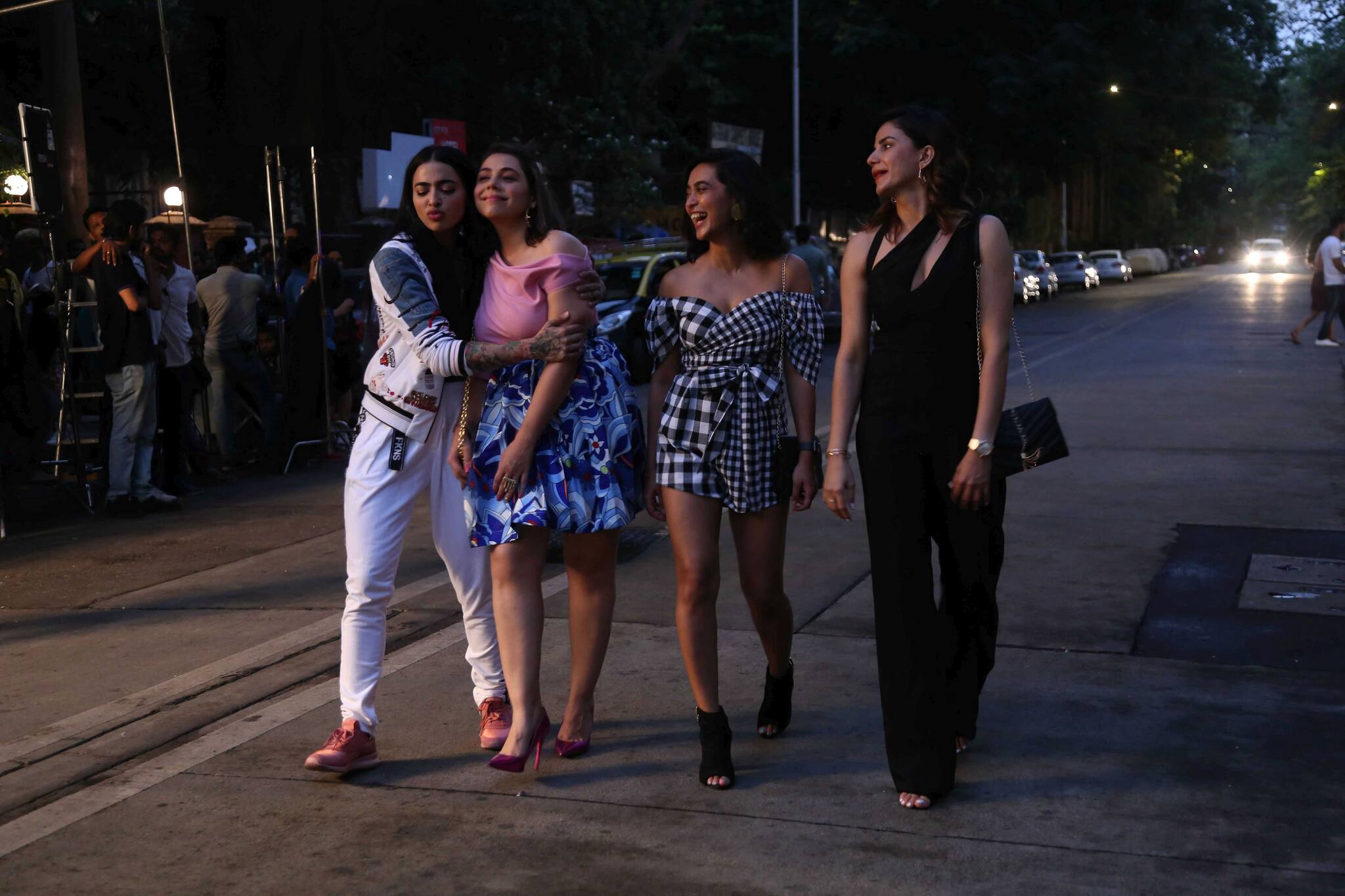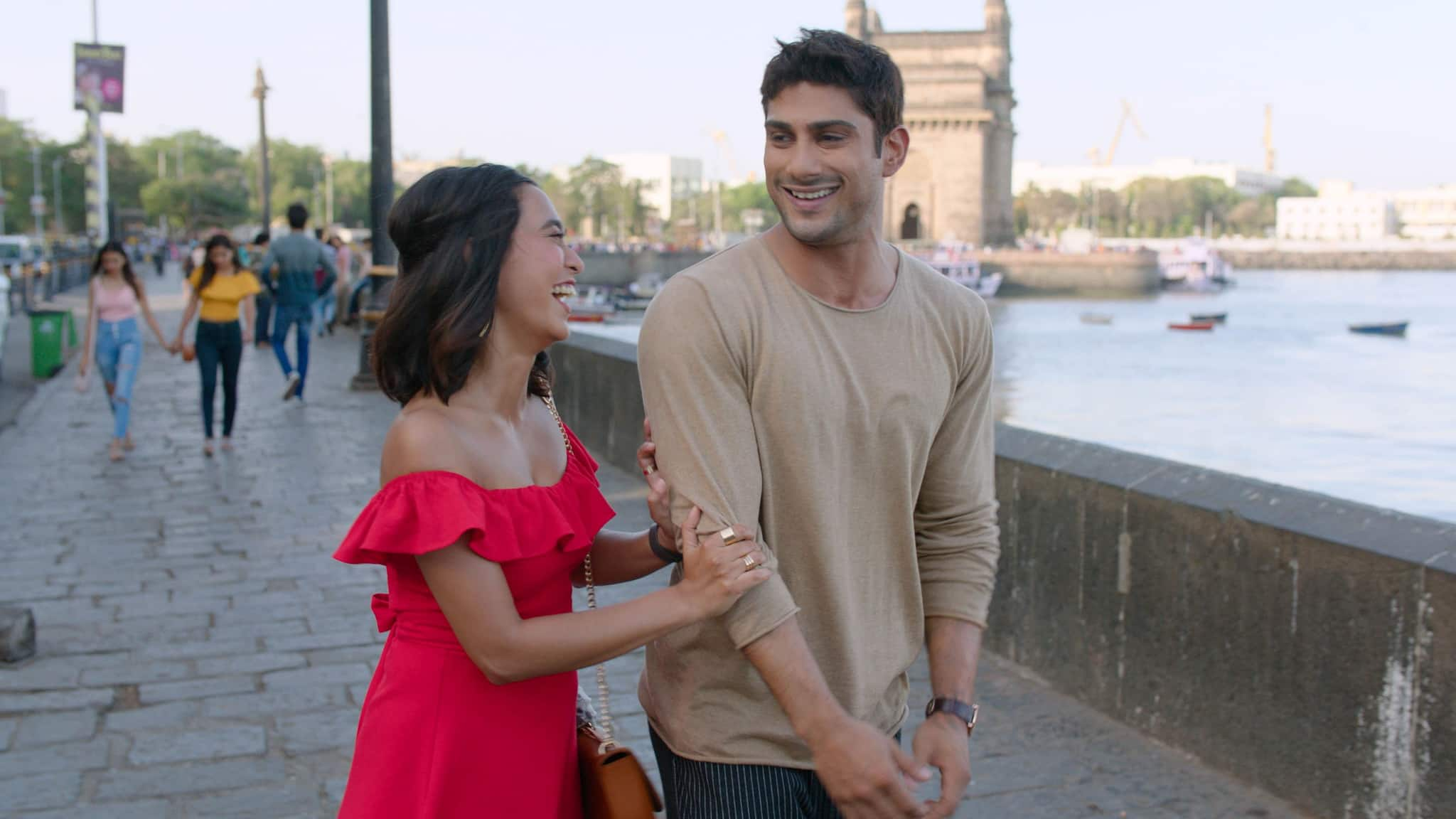The screenwriter of ‘Four More Shots Please!’ on flawed women, feminism, and political oppression
As Season 2 of 'Four More Shots Please!' creates both controversy and a new set of fans in urban India, screenwriter Devika Bhagat shares her take.
May 16, 2020 / 10:18 AM IST

Neha Kirpal
Stuck in the coronavirus lockdown, Indian netizens have been gorging on streaming television, and no other series has captured public imagination – and raised heckles – as much as Season 2 of Pritish Nandy and Rangita Nandy’s Four More Shots Please! on Amazon Prime.
Screenwriter of both seasons, Devika Bhagat talks about what feminism means to her, working with an all-women crew, breaking gender stereotypes, and broaching controversial subjects.
How did you come up with the storyline?
When I came on board for Season 1, Rangita Nandy had already created the characters. She wanted the show to be about “unapologetic, flawed women” as the tagline says. How each character’s story flows is through stories of our own lives, our personal experiences, and those of our family and friends. A single mother who hasn’t had sex since she got pregnant. A small-town girl who comes out of the closet in the big city. A journalist and a lawyer facing professional issues. A privileged south Mumbai girl trying to find her feet in the world.
 Devika Bhagat.
Devika Bhagat.
By Season 2, we ourselves had grown as women looking at the conversations around us – feminism, #MeToo – and saw how our characters could grow as strong individuals, while still remaining flawed. If we are going to tell a story about real women, we can’t make them straight-laced and puritanical because that’s not how women are.
What was it like working with an all-women cast and crew?
It was really refreshing to walk into a room filled with women. My baby daughter was 10 months old at the time, and I was trying to figure my life in a new context, so that when she looked at my work, she would feel proud of me and that my work had been of value.
 So this was a kind of conscious choice for me. The most important part of working with Rangita and Ishita Nandy, directors Anu Menon and Nupur Asthana, and dialogue writer Ishita Moitra was that we spoke the same language. If I narrated an incident from my past, there was no judgment; it was completely understood around the room. There was nobody trying to mansplain feminism and women to me. There was no ego in the room.
So this was a kind of conscious choice for me. The most important part of working with Rangita and Ishita Nandy, directors Anu Menon and Nupur Asthana, and dialogue writer Ishita Moitra was that we spoke the same language. If I narrated an incident from my past, there was no judgment; it was completely understood around the room. There was nobody trying to mansplain feminism and women to me. There was no ego in the room.
The female actors felt safe in such an environment too. They were free to examine their characters, criticise them and love them.
You take up feminism in the Indian context, and the chasm between even women when it comes to its interpretations. Why bring this up?
Feminism is a much-abused word. The interpretation changes depending on which social or economic class one is looking at in India. A village girl who is not allowed to study, or is married off at the age of 12 or 13, or sent to work in a construction site, has a different need for feminism. A small-town girl, who is not allowed to live her life or have a career, has a different need for feminism, as does a cosmopolitan woman.
 Feminism means equal rights – for pay, status, respect and opportunity. Every woman in the world is facing inequality in varying degrees. Nobody has the right to say that a privileged woman has no issues or has a shallow definition of feminism. Women with privilege and education should be able to use feminism to their advantage so that it filters down. We are the ones that can make the change. We must fight with our privilege – that is feminism to me.
Feminism means equal rights – for pay, status, respect and opportunity. Every woman in the world is facing inequality in varying degrees. Nobody has the right to say that a privileged woman has no issues or has a shallow definition of feminism. Women with privilege and education should be able to use feminism to their advantage so that it filters down. We are the ones that can make the change. We must fight with our privilege – that is feminism to me.
It was also important to break stereotypes, because we had to present women in their true form – which is that they don’t fit any stereotype – to present women with all their beauty and ugliness, and to not judge them. The important thing while breaking stereotypes was not to care what men think. We did not make this series for male consumption.
You broached controversial topics such as open marriage and infidelity. What was the feedback – bouquets or brickbats?
Most brickbats are from men who feel that we are corrupting the mind of Indian women. We are showing women empowerment by showing characters striving for the truth and having the strength to overcome anything – they also happen to enjoy sex and have an occasional drink. But we present it in shades of grey. Nobody is the enemy, nobody is the loser, nobody is the winner. Everybody is living life the best they can.
You’ve also touched on political issues this time: right-wing fanaticism, political oppression and social-media trolls. What triggered you to take up these issues?
Today, everyone’s lives are being affected by the political scenario in the country. You can’t escape it. People are being forced to pick sides and even if we don’t, we are categorised. So, it was really important to bring that into the script. We cannot escape that a female journalist is heckled, trolled and abused because of her articles and opinions – it’s happening.
We live in a secular democracy and we need to create an atmosphere where there is constructive dialogue, debate, and discussion. I don’t think that’s going to happen for a long time and that scares me because nobody should be allowed to tell someone else that their opinions are not valid, and nobody is allowed to threaten, troll or abuse you because their views don’t match yours.
Women have been at the receiving end of misogyny and body shaming for centuries. How did you balance the need for a glamorous portrayal of the heroines with the uglier realities of being a woman?
When I write, I don’t actually talk about their clothes or makeup or them being fashionable even when I’m sketching out the characters. That was something that Rangita felt very strongly about because she wanted them to be true to the south Bombay (SoBo) world. I was a little disturbed when I saw the edit of the first season and I voiced my opinion to Rangita. I felt that the fashion and makeup was taking away from the emotion of the scene. That, as a writer, is unacceptable to me.
It has been toned down a lot in Season 2. Indian women have grace about them, which doesn’t need to be accentuated with high fashion and makeup, but it was done because the creator felt it was really important for the kind of series that they wanted to create – she wanted the women to be aspirational. The characters can afford to buy clothes that look good. The women dress for themselves, not the world.
Do you think the demand for women-centric series/films is going up? Is the increase in women screenwriters powering this shift, or is it demand encouraging supply?
Women-centric films and series that have been produced in India so far have covered vastly two areas. The first is the underdog from an underprivileged background who fights against the system, overcomes all the obstacles against all odds, succeeds and reaches their goal. The second area is the woman who goes through trauma and abuse because of the system and then goes on a path of either revenge or justice.
Both these areas are important, because they bring out the message to the women of this country that they can also succeed, anything is possible and that they too have the right to justice where the wrongdoings against them can be fought against, and that their dreams, hopes and ambitions can be achieved.
I wrote one of the first few films in India, Aisha, that cover topics other than this. Since then, there have been a handful of similar films, such as Lipstick Under My Burkha and Veerey Di Wedding. To hope for something more varied, such as buddy movies, stories about female spies (like Raazi) and love stories from a woman’s perspective, is where female screenwriters come in.
There are many female directors and screenwriters in the industry just now, especially those above the age of 35, going into our 40s. We came into the industry in the mid-2000s, when we weren’t given the opportunity to tell the stories that we wanted to.
 When Rajashree Ojha and I went to pitch Aisha to production houses, we were told that women-centric films don’t work at the box office, there’s no demand or audience for them, why don’t you just change the protagonist and make it a male matchmaker; and we thought Jane Austen would just roll over in her grave if we were to turn Emma into a male-centric story.
When Rajashree Ojha and I went to pitch Aisha to production houses, we were told that women-centric films don’t work at the box office, there’s no demand or audience for them, why don’t you just change the protagonist and make it a male matchmaker; and we thought Jane Austen would just roll over in her grave if we were to turn Emma into a male-centric story.
So, when one or two of the initial films came out, it gave us the strength to go forth and pitch more women-centric films.
Who are some of your contemporaries that you admire and look up to? What are your creative inspirations?
In India, it would be Zoya Akhtar and Alankrita Shrivastava. I think Zoya tries to bring about a new perspective to entertainment, and Alankrita tries to bring entertainment into a different perspective. Internationally, I admire Mindy Kaling for the same reason. I think she is really succeeding at using entertainment to change perspectives.
Life itself is my creative inspiration. The experiences that I have had in my life, whether it was moving to Bombay in my 20s, being a struggling screenwriter, being single, dating, falling in love, getting married, having a baby – these give me different perspectives and allow me to have a little bit of each character in me. I am someone juggling motherhood with her professional life. I spent most of my childhood and teenage years being severely overweight. A part of me has an OCD that needs to complete tasks.
Creative inspirations are also about relationships one has with people, whether family or professional. It’s the stories that you hear, things that you hear happen to friends that you try to analyse or figure out – all that and more.
Discover the latest business news, Sensex, and Nifty updates. Obtain Personal Finance insights, tax queries, and expert opinions on Moneycontrol or download the Moneycontrol App to stay updated!














